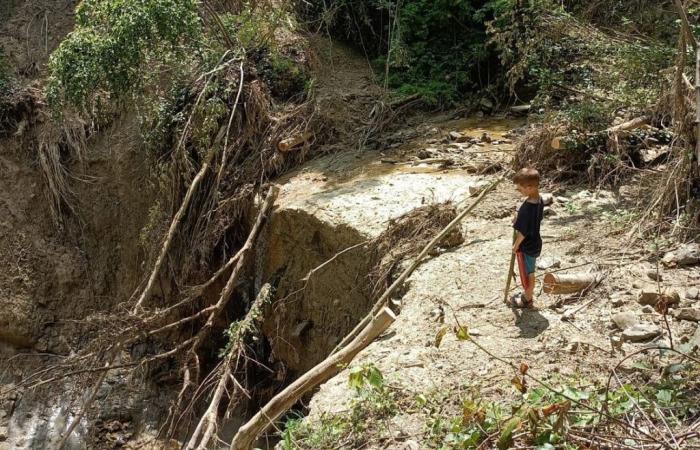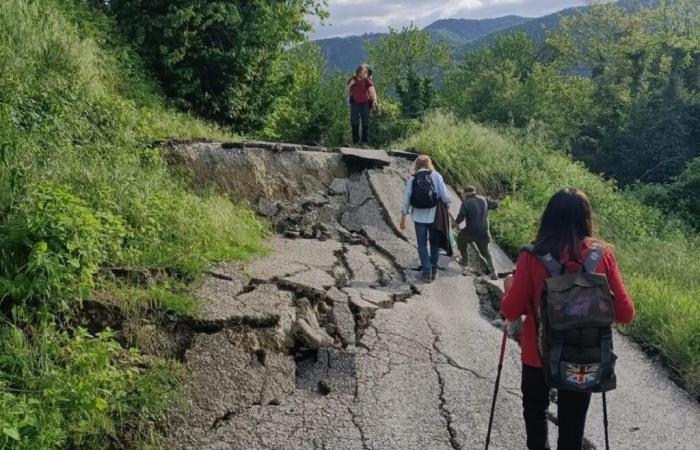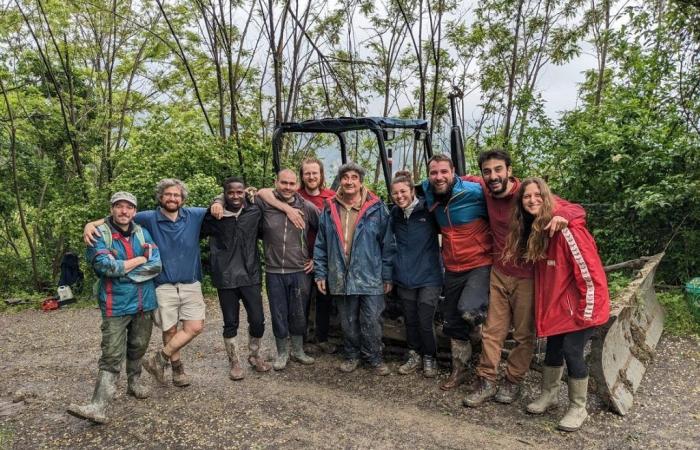Cesena, Emilia Romagna – «If they had told me, I would never have believed it», confesses Agnese Palazzi, researcher at the University of Bologna, thinking back to the days following the flood that seriously hit Romagna in May last year. That night of pouring rain he was in Cesena. An extreme event had been predicted in a few hours, but the sunset of the evening before did not suggest anything. His parents, however, were in Nuvoleto, a small village in the hamlet of Mercato Saraceno, inhabited by only ten families.
Remained depopulated after the Second World War, at the beginning of the 1980s seven nuclei chose it to form a small lay community inspired by the model of Don Giuseppe Dossetti, who in addition to being a partisan, a founding father of the Republic and an important exponent of the Christian Democrat left, founded a monastic community based on the return to a simple life. Together with two families who had remained on the hill for generations, the new inhabitants who moved from the city to the village recovered the abandoned and partly ruined houses, in the name of a lifestyle based on sharing and contact with nature.
THE RAIN TAKES EVERYTHING AWAY
In Nuvoleto everyone knows each other. We help each other as happens less and less among those who live in the city. When following the flood the only road leading to the village is broken by landslides and blocked by fallen trees, that dream of sharing from which Nuvoleto was reborn seems to shatter in a single blow. According to estimates, in a few hours 350 million cubic meters of water poured violently over an area of 800 square kilometers between the eastern end of the Bolognese hills, the Ravenna area and the Cesena and Forlì areas.
The day after that terrible night of May 17th Marco, a resident of Nuvoleto, realizes that his garden has collapsed and that his neighbour’s tractors are about to fall down the slope. «At that moment, however, no one had yet looked out to see the street, everyone was at home», says Agnese. «When the owner of the tractors tried to move them, he had to walk along it. He was the first to see what had happened.” “Nuvoleto is finished. It no longer exists,” were his first words.
Of those nights of incessant rain, there are those who cannot forget the sound of landslides. A noise reminiscent of a collapse. That of the trees, of the hillsides
After two days of incessant rain, a respite arrives. Some of the families of the village decided to set out on foot. The elderly and a family with an eight-month-old baby were unable to do the same. «There was no electricity or gas. However, there was a generator, purchased in sharing – continues Agnese – and those who remained in town took turns charging their phones and connecting the freezers. My parents were stuck there. So my partner and I set out to get them, taking a camp stove and petrol with us.”
Shortly afterwards, the call from the Civil Protection arrives for the recovery of the remaining people by helicopter and within a short time the evacuation order for safety reasons. For those who were stuck in Nuvoleto it was impossible to imagine what had happened to the road. «It was very difficult to convince my parents to leave their home. Convince them that at that moment it was better to leave rather than stay.” Few realized the enormity of what happened in such a short space of time.
FORCED TO ABANDON EVERYTHING
«After some negotiations, we managed to convince them to leave together with everyone else. At that moment no one knew how long it would not be possible to return. In short, go away, but where? The uncertainty of not knowing what to take with you, whether to leave food for the cats and for how many days, disturbed the fleeing inhabitants of Nuvoleto. It was not possible to transport so many things given the road conditions. And little by little we made our way.” Before their return to Nuvoleto, for about two months, Agnese’s parents remained in Ravenna with her grandparents, where it had been decided to cut the embankments, flood the fields and thus protect the city.
Of those nights of incessant rain, there are those who cannot forget the sound of landslides. A noise reminiscent of a collapse. That of the trees, of the hillsides. «This is another often overlooked topic», points out Agnese. «How does one feel when faced with the landscape in which one was born and raised when it changes in such a violent and irreversible way?». In fact, of the families who once lived in Nuvoleto, only four out of ten decided to return after the flood.
A ROAD TO CLOUD
Embraced by the solidarity of friends and volunteers, the inhabitants of Nuvoleto immediately worked to restore the only access to the town. Landslides broke the road in three places and makeshift paths were built in correspondence with these. They are not paved, but covered with gravel and marble dust. According to geological surveys, landslides have an initial settling phase that lasts about six months after the event and a longer one that can be five or six years. The way in which landslides will move will depend on the geological changes of the Earth and external factors, such as extreme weather events.
«The winter was a test. In September the Municipality intervened to carry out the first works that would provide greater stability in view of the winter months – continues Agnese -, but the big dilemma is between the need to make the road passable and waiting to understand how the landslides will move without investing too many in funds in this adjustment phase. So spend less and do the best you can.”
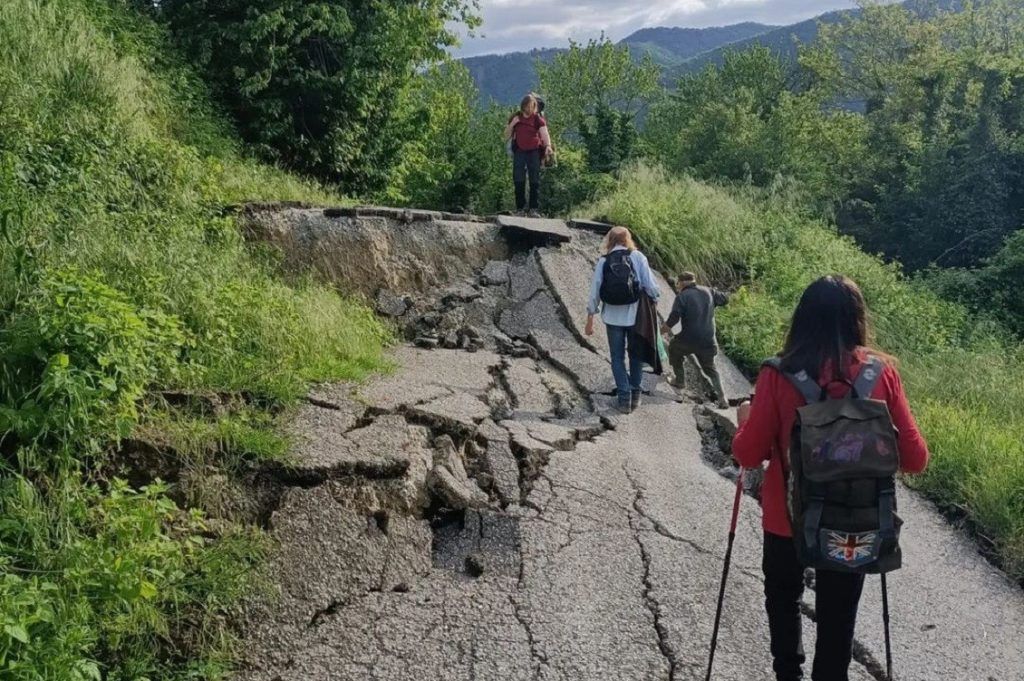
From how one of the sections of the road most damaged by landslides in particular will move, it will be clear whether the road route can continue to pass through there or another route will have to be found. «In the best case scenario, an estimated cost of 300 thousand euros to fix the road. In the worst case however, the costs would amount to up to 3 million euros.” The issue of costs proved to be extremely central right from the start. In fact, the road to Nuvoleto is a local road, the maintenance costs of which, according to the highway code, must be borne half by the residents and owners of the surrounding agricultural land and the rest by the relevant public body.
«It seems that the commissioner structure has allocated a sum of 100 thousand euros of public funds – explains Agnese –, but this money cannot yet be spent today because the road continues to move and in the meantime the personal and family needs of the inhabitants change. While waiting for this path, the great danger is that people will leave as some of them have already done. So we thought we’d launch a fundraiser and create an association, Una strada per Nuvoleto.”
The fundraiser received a huge response, «moving. None of us expected this story to come this far. We chose to create a social promotion association that could manage the funds raised and also set itself more long-term objectives, once the initial emergency which saw us all in the front row holding the chainsaw and connecting the pipes to the springs, bringing back the water that no longer reached the houses”.
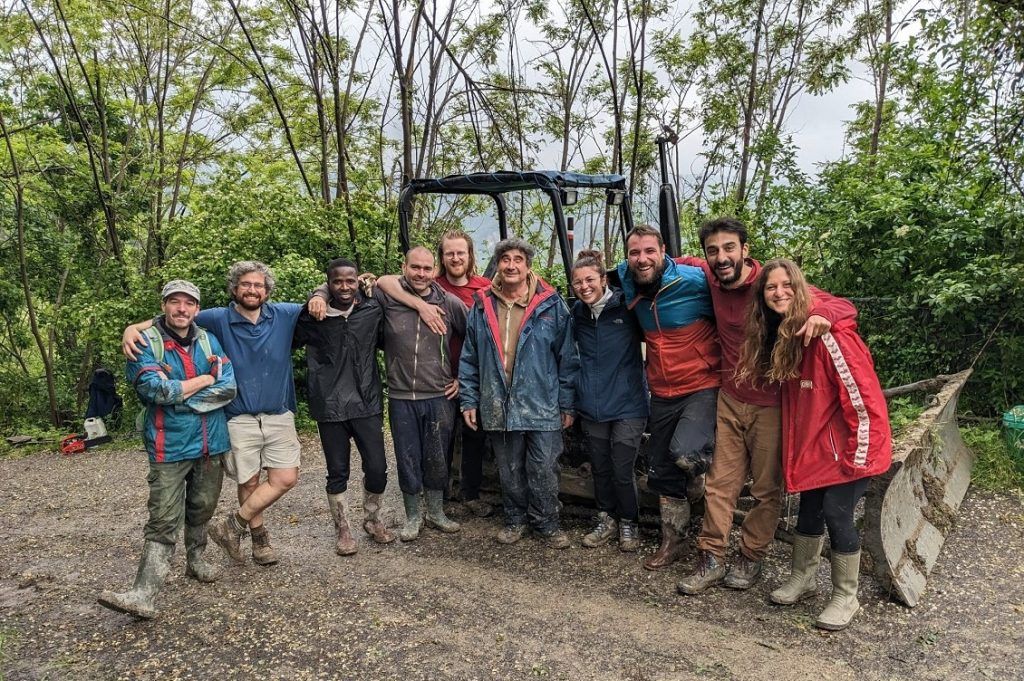
RECOGNIZE YOURSELF AS A COMMUNITY
This traumatic event was proof of what a community can do together. «The flood redesigned borders, roads, the geography of landscapes and rekindled the sense of community. Without others we wouldn’t be where we are today: I don’t know where we would be» comments Agnese. «The road remains a big question mark and the geologists have told us this very clearly. We need to see how the landslides will settle. What is certain is that we will continue to do something for Nuvoleto, to prevent it from being abandoned.”
“What can a small community affected by an extreme climate event do?”, asked Agnese and the other inhabitants of Nuvoleto. «We are trying to answer this question. In the meantime, we hold each other tight and try to understand what happened. Climate change is not just news read in an article in the newspaper, but something we have experienced first-hand as well as the inevitable choice of having to leave our home. How many people will be forced to set out and escape from now on?”. Asking yourself this is a political and human duty of each of us.


